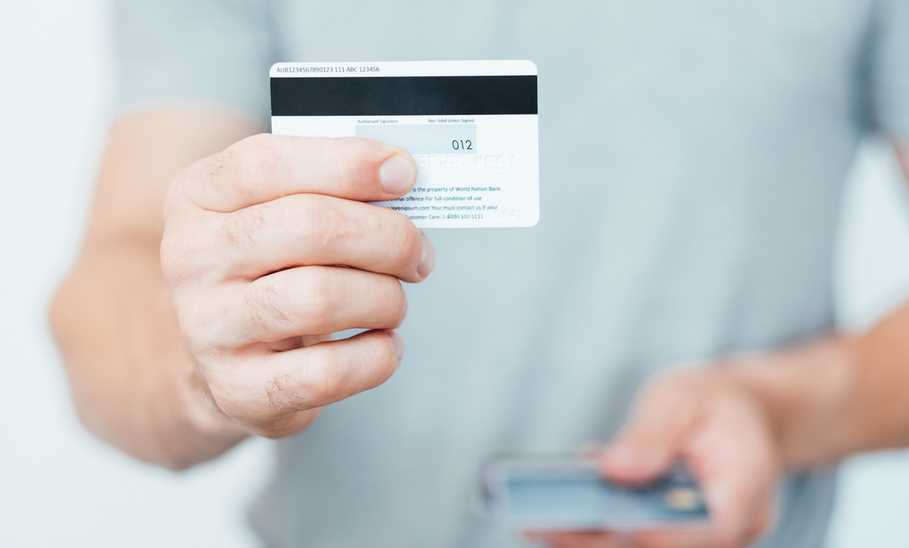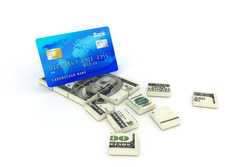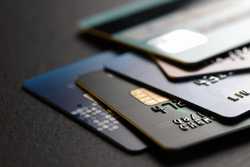How to Find the Credit Card Security Code (CVV)


Our evaluations and opinions are not influenced by our advertising relationships, but we may earn a commission from our partners’ links. This content is created by TIME Stamped, under TIME’s direction and produced in accordance with TIME’s editorial guidelines and overseen by TIME’s editorial staff. Learn more about it.
When shopping online or by phone, your credit card number and expiration date aren't the only info a merchant may ask you to provide. You may also have to share your card's security code, which you can find on the front or back of your card, depending on the credit card issuer.
Your security code number adds extra protection against unauthorized credit card transactions. Here's where to find it and why it's important.
A credit card security code is a three-or four-digit number listed on your credit card. This unique identifier helps protect you against credit card fraud. Retailers usually ask you to provide this number when you're shopping online or by phone to confirm you have physical access to the card.
Tip: You can also protect yourself against credit card fraud by checking your credit card statements and credit reports often for fraudulent transactions. To view your credit reports from all three major credit bureaus — Equifax, Experian and TransUnion — for free weekly through Dec. 2023, visit AnnualCreditReport.com.
A credit card security code is generally referred to as CVV (Credit Verification Value), but you may come across alternative names for it, like:
You generally need to provide your credit card security code in scenarios where the physical card isn't present, like:
Your credit card security code is important because it adds an extra verification step for transactions where merchants can’t confirm you have access to the physical card, such as online and phone transactions.
Merchants can store your credit card number in an online database, but according to Payment Card Industry (PCI) Security Standards, they’re not allowed to store your security code number. Credit card security numbers make it harder for someone who steals your credit card from a merchant to commit credit card fraud against you.
Many major credit card issuers place credit card security code numbers on the back of your credit card. It’s usually a three-digit number, but American express uses four digits.
The table below breaks down where to find your security code for four major credit card issuers:
| Credit Card Issuer | Location |
|---|---|
Discover | Back of the card and the right of your card number |
Mastercard | Back of the card and the right of your card number |
American Express | Front of the card and to the right of your card number |
Visa | Back of the card and the right of your card number |
A credit card security code is a way to provide proof to a merchant that you have a physical copy of your credit card. As a result, it’s not possible to locate your credit card’s security code without the card. If you’ve misplaced your card, you’ll need to request a new one.
If you’d like to shop online without entering your card’s security code, consider asking your provider for a virtual card number.
Your credit card security code helps protect you against credit card fraud. Discover, Mastercard and Visa credit card security codes are listed on the back of the card, while American Express lists the code on the front.
That said, while credit card security codes can make it harder for a criminal to commit credit fraud against you, it doesn't make it impossible. Monitoring your credit reports and credit card statements are additional steps you can take to catch any fraudulent transactions.
You should only share your credit card security code with a legitimate merchant. Sharing your security code with anyone else can increase your chances of becoming a victim of credit card fraud.
Another technology that is used to verify transactions by some credit card issuers is dynamic credit card security codes. For example, some Visa cards allow issuers to issue dynamic codes referred to as dCVV2. Instead of using one security code, a consumer requests different codes, which can provide a greater level of credit card fraud protection than a regular credit card security code.
The answer depends on a retailer's refund policy. Some retailers may only ask for your receipt to issue a credit card refund, while others may ask for you to provide additional information, like your credit card number and your CVV.
The information presented here is created by TIME Stamped and overseen by TIME editorial staff. To learn more, see our About Us page.



